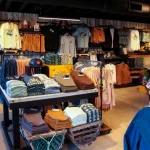Wilderness Trail Bikes (WTB) President Patrick Seidler has returned from co-hosting a delegation of Romanian officials on a guided bicycle tour of Delft, a Dutch city famous for incorporate cycling and pedestrian infrastructure into its intermodal transportation system.
The trip was a cooperative effort by WTB, its sister nonprofit Transportation Alternatives for Marin (TAM) and Romania’s largest bicycle manufacturer – Donghui Sports Equipment Company (DHS). All are eager to show Romanian decision makers how they can tap development funds from the European Union to design bicycle and pedestrian friendly urban transportation networks. The trip was organized with help from the European Cyclists’ Federation, which has successfully lobbied the EU to invest more in bicycle infrastructure projects. Also on hand was Ipv Delft a highly regarded multi-modal transport design firm based in The Netherlands.
 “There is nothing quite as satisfying as teaching through doing,” explained Seidler, shown to the right. “The entirety of this Study Trip occurs either by bicycle, train, or transit, proving that multi-modal transportation can work seamlessly. Combine that with face-to-face meetings with famed Dutch design firm Ipv Delft, CROW (the NGO responsible for Dutch bikeway technical guidelines) and several Dutch cities and transportation officials and you have irrefutable evidence that multi-modal design is not only possible but highly effective.”
“There is nothing quite as satisfying as teaching through doing,” explained Seidler, shown to the right. “The entirety of this Study Trip occurs either by bicycle, train, or transit, proving that multi-modal transportation can work seamlessly. Combine that with face-to-face meetings with famed Dutch design firm Ipv Delft, CROW (the NGO responsible for Dutch bikeway technical guidelines) and several Dutch cities and transportation officials and you have irrefutable evidence that multi-modal design is not only possible but highly effective.” The European Cyclists’ Federation, which represents over 80 organizations in Europe and around the world, supported the exchange trip with expertise from Ed Lancaster, an ECF specialist in EU funding. Lancaster presented the Romanian delegation with tips on how to unlock funds for regional cohesion and development.
“Romania has already received €23 billion and the future seems very promising!” said Mr. Lancaster. WTB has been an active contributor to ECF’s Cycling Industry Club, which aims to empower cycling advocacy worldwide.
Lucian Vizantie said he will incorporate what he learned during the trip into a project he will propose to the Romanian city of Sibiu, where he serves as director of public service and is responsible for designing bike trails.
Vizantie said he will propose building cycling paths, bicycle parking and ample spacing for multi-modal transport based on what he saw in The Netherlands. There are already plans in motion to construct a separate viaduct over Sibiu’s main railway.
Vizantie said he will propose building cycling paths, bicycle parking and ample spacing for multi-modal transport based on what he saw in The Netherlands. There are already plans in motion to construct a separate viaduct over Sibiu’s main railway.
“It was a real opportunity to study integrated and inter-modal transport systems in different cities all over the Netherlands,” added Radu Marian Dragomir, a representative from the municipality of Deva.
Those interested, can learn more about the trip and WTB's advocacy work at WTB's blog.














